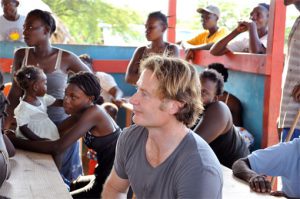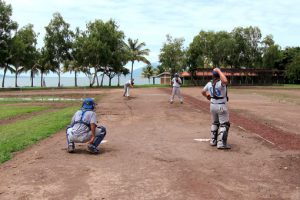
Root Capital: A Case Study in Impact Investing
Throughout the developing world, the rural poor—approximately 75 percent of the more than 2.7 billion people who live on less than $2 a day—are often isolated from formal markets. However, impact investing that generates social or environmental benefits and financial returns presents a new opportunity to address rural poverty with market-based solutions. A recent study … Read more
When the Private Sector Isn’t Enough
In March 2011, the U.S. Overseas Private Investment Corporation (OPIC) announced a call for investment proposals for impact investing. OPIC, the U.S. development finance agency, had set aside $250 million of its $14 billion portfolio for investment in funds that aimed to combine positive social and environmental impacts in the emerging markets that OPIC operates … Read more
Not So Fast: The Realities of Impact Investing
At the beginning of 2010, the Indian microfinance sector was a hotspot for impact investors. The promise of impact investing could be seen in the number of investors lining up to participate in the initial public offering (IPO) of SKS Microfinance. SKS had ballooned from 603,000 borrowers in fiscal year 2007 to 6.8 million in … Read more

Is the OAS Irrelevant?
Within hours of the terrorist attacks on September 11, 2001, the General Assembly of the Organization of American States (OAS), meeting in Lima, adopted by acclamation the Inter-American Democratic Charter—a bold manifesto that inched past the jealously guarded concept of national sovereignty to declare with unprecedented clarity that all people in the region have the … Read more

There But Not Equal
In 1973, Billie Jean King invited 62 other women tennis players to a meeting in London and convinced them to join her in the creation of the Women’s Tennis Association (WTA). It was a first step toward male-female equality in the sport that King had championed for years. Today, the WTA runs 52 tournaments in … Read more

Baseball’s Newest Farm System
The Dominican Republic and Nicaragua are roughly comparable in population and share an equally deep passion for baseball. But the Dominican Republic has sent well over 100 players to Major League Baseball (MLB) teams, while Nicaragua counts only three big-time players. Nicaragua is looking to change that disparity. And the first step in achieving that … Read more
GOOOOOOL…for Development
Five years ago, Lina, a teenager living in one of the most dangerous neighborhoods in Cali, Colombia, was unemployed and unmotivated, idling away her time at home. Today, at 22, Lina is assistant to the manager of a local apparel company, earning a steady income with social security and pension benefits. She is also planning … Read more
Hearts, Minds and Bottom Lines
Whether it is Brazil’s five World Cup triumphs, Cuba’s Olympic boxing gold medals, the West Indies’ global dominance of test cricket in the 1970s and 1980s, or Argentina’s World Cup victories in 1978 and 1986, the passion for sports stretches across the Americas. For fans around the region, sports serve as an escape from their … Read more
Covering Sports in Latin America
Until recently, sports media rights in Latin America have gotten little attention due to their relatively low value compared to other parts of the world. However, as the region hosts more sporting events and the overall economy grows, coupled with an increase in Latin American athletes competing in Europe and North America, the sports media … Read more
Sports Populism
When Brazil’s national soccer team flew home with the 1970 Jules Rimet trophy from that year’s World Cup, the players’ first stop was Brasilia, where they were warmly welcomed by then-leader General Emilio Garrastazu Médici. To everyone’s surprise, Médici had opened the presidential palace gates to the general public for the first time since the … Read more

Argentina’s Migration Solution
Most Latin American countries have regarded immigration policy as a function of border protection, using approaches that emphasize security and law enforcement, including strict regulation of work and residency permits. Nevertheless, such policies have not only failed in recent years to curb the growth of undocumented migrants; they have also clashed with resolutions adopted in … Read more
The Americas Go Glocal
There is little doubt that the North-South axis remains dominant for Latin America’s geopolitical positioning. But new relations are emerging and deepening at subnational levels, in turn creating new intercity geographies and challenging that geopolitical notion. These relations are a direct product of economic and cultural globalization. Some examples are the shift of migration from … Read more
What Happened to the North American Idea?
Two decades ago, the leaders of Canada, Mexico and the United States forged an agreement that transformed North America from just a geographical expression to the world’s most formidable economic entity. The North American Free Trade Agreement (NAFTA) eliminated most of the trade and investment barriers that had segmented the continent. Within a decade, trade … Read more
Puncturing the 4 Myths about Latin America
Most people have grown used to thinking about Latin America as a region of marginal global importance: painfully poor, violent, politically and economically unstable and, to top it all, fragmented into some 20-odd countries, each one different from the other. So when Jerry Wind, founding editor of Wharton School Publishing, invited me to speak on … Read more
The Opportunities and Challenges for President Dilma Rousseff
Gradually and firmly over the past 15 years, Brazil has consolidated a stable democracy, broken free from macroeconomic instability, and taken remarkable steps toward alleviating poverty and reducing a historically high level of income inequality. The country that welcomed Dilma Rousseff as its new president on January 1 is also the country that will host … Read more


